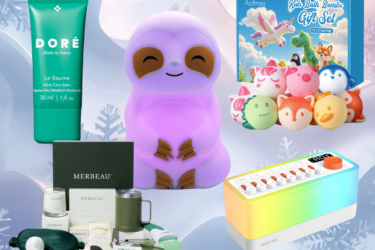By Kinsi Heaton
Many don’t realize that when you have poor oral health, you may have other health problems. We interviewed Baton Rouge orthodontist, Dr. Rick Martin, to tackle important issues dealing with oral health.
Mouth sores or lesions
Causes
Traumatic lesions from rubbing on a filling or braces; injury, brushing too hard, viral lesions, or burns
Effects
Pain and discomfort, altering of food choices
Treatment
“Use a topical ointment containing benzocaine. There are several available in the toothbrush area of most pharmacies. There are also some prescription medicines available for canker sores if they occur frequently. Your dentist can prescribe these.”
Gum swelling
Causes
Bacteria in the mouth, cutting of teeth, dental abscess or infection
Effects
Redness, pain, sores, ulcers, bleeding, infection, gum disease
Treatment
“Rinse with salt water twice a day for a few days. The swelling may be due to an erupting tooth or a mild gum infection, but if the gums continue to swell you should see your dentist.”
Tooth decay
Tooth decay is the destruction of the outer surface (enamel) of a tooth.
Causes
Debris turns into plaque, then cavities. Plaque is a filmy deposit on the surface of the tooth consisting of a mixture of bacteria, food, and debris.
Effects
Pain in mouth, sometimes severe; higher risk of new decay in other teeth
Treatment
“Although small cavities in baby teeth don’t always need to be filled, you should see a dentist if you see a cavity because the cavity can be bigger underneath the tooth’s surface than it appears on the outside. Only an X-ray can reveal this.”
Gum Disease
Gum disease is an inflammation of the soft tissue (gingiva) and an abnormal loss of bone that surrounds the teeth and holds them in place.
Causes
Poor oral hygiene or plaque buildup
Effects
Bleeding, puffiness, gum recession
Treatment
“This normally requires having your teeth cleaned by a dentist and then following a disciplined home care regimen of brushing three to four times a day and flossing daily.”
Sensitivity to sweets, cold, or heat
Causes
Cavities, tooth grinding, incorrect brushing or with too much pressure, chipped or fractured teeth, gum recession
Effects if untreated
Wearing away of enamel, painful eating, loss of teeth
Treatment
“Use a desensitizing toothpaste. If the sensitivity persists, see a dentist to make sure the sensitivity isn’t due to a cavity.”
Bruxism
Bruxism is the involuntary or habitual grinding of teeth, typically during the night.
Causes
Top and bottom teeth alignment, earaches, teething, stress, hyperactivity
Effects
Headaches, Damage to the teeth
Treatment
“Sometimes improving the occlusion with braces or an occlusal equilibration can eliminate the grinding. However, some people are going to grind their teeth no matter what you do, so a night guard will be necessary to prevent damage to the teeth.”
Dr. Martin explains that occlusal equilibration is a term used in dentistry to describe the adjustment of the way your upper and lower teeth bite together. Altering the chewing surfaces of some or all of a person’s teeth allows the jaw joints to be in the proper location when the teeth are fitting together.
Oral Thrush
Oral thrush is an infection of the mouth caused by candida fungus (i.e. yeast).
Causes
Small amounts of the candida fungus are present in the mouth, digestive tract, and skin of people and are normally kept in check by other bacteria and microorganisms in the body. However, certain illnesses, stress, or medications can disturb the delicate balance, causing the fungus candida to grow out of control, causing thrush.
Effects
Difficulty swallowing, mouth pain, fever, spreading of infection to other parts of the body
Treatment
“This normally requires prescription medicines to eliminate.”
Cutting Teeth
Causes
Usually beginning between six to nine months after birth, this normal process occurs when roots reach a certain stage of development, allowing adult or new teeth to come into the mouth.
Effects
Elevated fever, drooling, pain
Treatment
Use a topical ointment containing benzocaine. There are several available in the toothbrush area of most pharmacies.” Some pediatricians will also prescribe a fever-reducing medication.
Q & A with Dr. Martin
Tap water vs. bottled water: Does it matter if my child drinks only bottled water concerning fluoride?
“Tap water has chlorine to kill bacteria and can also contain fluoride which makes teeth stronger and more resistant to decay. Bottled water normally doesn’t contain either chlorine or fluoride. The level of fluoride in tap water varies by location, so sometimes vitamins containing fluoride are also necessary. If your child is drinking only bottled water, he will probably need to take extra fluoride to strengthen his teeth. Fluoride vitamins are not necessary after the age of 12.”
Can sippy cups be harmful for a child’s teeth? Is it better to have the child switch from a bottle to a sippy cup and stop sucking as quickly as possible?
“Sippy cups are not inherently harmful, but if they contain sugary drinks and are used constantly, the child is more likely to develop cavities. The same thing can happen with a bottle. There’s no difference in dental health between sucking and sipping, but keeping anything in your mouth (like a thumb) for an extended period of time can affect the eruption of the teeth and growth of the jaws if not stopped before the permanent teeth start erupting (about age six).”





